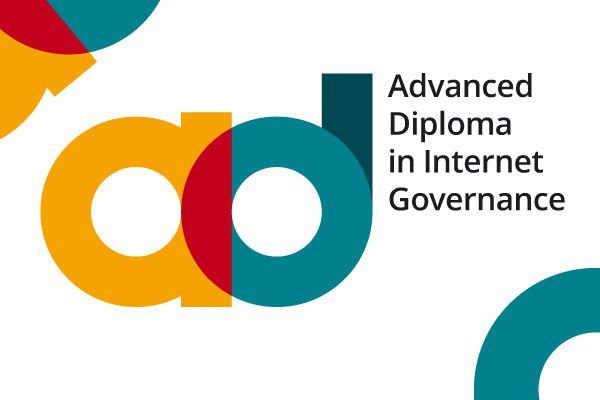
Policy Meets Tech: Cryptography
Critical infrastructure, Events Training and workshops Encryption EventsThe 'Policy meets tech' series, organized by Diplo with support from the Permanent Mission to the in Geneva, will focus on cryptography. It aims to aid diplomats in understanding digital technologies, their policy implications, and real-world applications. Sessions cover internet protocols, quantum computing, cryptography, and algorithms. Interested parties can contact Ms Sorina Teleanu for more information at geneva@diplomacy.edu.

Policy Meets Tech: Internet infrastructure, standards, and protocols
Capacity development, Critical infrastructure EventsDiplo's Policy Meets Tech series discusses internet infrastructure, standards, and protocols, including topics like internet protocols, domain name systems, Wi-Fi standards, and data as a currency. The aim is to help diplomats in Geneva understand digital technologies and their policy implications effectively.

Can sharks eat the Internet?
Critical infrastructure Critical infrastructure, Critical internet resources, CybersecurityWe explore the curious phenomenon of sharks attacking undersea cables, highlighting the intersection between nature and technology. This discussion sheds light on the vulnerabilities of our global internet infrastructure and the fascinating reasons behind such marine behavior.

Dive deep into protecting submarine cables: How to make the internet safer?
Critical infrastructure, Cybersecurity Critical infrastructure, Critical internet resources, CybersecurityWe explore the critical importance of safeguarding undersea cable infrastructure, highlighting the technological, environmental, and geopolitical challenges involved in ensuring global connectivity remains uninterrupted.

US government launches Digital Transformation with Africa initiative
Access, Capacity development, Critical infrastructure, E-commerce and trade, Telecommunications infrastructure Access, Capacity development, Critical infrastructure UpdatesThe US government has launched the Digital Transformation with Africa initiative, committing over $350 million to expand digital access and literacy in Africa. The initiative focuses on three pillars: digital economy and infrastructure, human capital development, and digital enabling environments, aiming to support African Union and sub-Saharan Africa strategies.

Advanced Diploma in Internet Governance
Access, Alumni, Capacity development, Courses, Critical infrastructure, Cybersecurity, E-commerce and trade, Faculty, guidelines, IFDT, Telecommunications infrastructure Access, AI diplomacy, Artificial Intelligence, Blockchain, Capacity development, Child safety online, Children's rights, Chip diplomacy, Civil society, Cloud Computing, Communication, Consumer protection, Content policy, Critical infrastructure, Critical internet resources, Cryptocurrencies, Cyberconflict and warfare, Cybercrime, Cybermediation, Cybernorms, Cybersecurity, Data and diplomacy, Data governance, Development, Digital business models, Digital diplomacy, Digital divide, Digital identities, Digital legacies, Digital standards, Diplomacy courses and workshops, Diplomatic career, Diplomatic functions and tools, Diplomatic service, E-commerce and trade, E-government, E-tools, Emerging technologies, Encryption, Foreign ministries, Freedom of expression, Gender rights online, Geneva diplomacy, Human rights, ICT diplomacy, Inclusive finance, Infrastructure, Intellectual property rights, Intercultural communication, Interdisciplinary approaches, International organisations, Internet governance and digital policy, Internet of things, Jurisdiction, Legal and regulatory, Liability of intermediaries, Multilateral diplomacy, Multilingualism, Multistakeholder diplomacy, Net neutrality and zero-rating, Network security, Online diplomacy, Online education, Pedagogy, Politics and governance, Privacy and data protection, Public policy, Regional cooperation, Regionalism, Remote participation, Rights of persons with disabilities, Security, Semiconductor diplomacy, Semiconductors, Social media, Sociocultural, Sustainable development, Taxation, Telecommunications infrastructure, Terrorism, Transparency, Trust, Violent extremism CoursesThis ADIG online capacity development programme gives current and future internet policymakers a solid foundation in practical and diplomatic skills, as well as techniques necessary to engage effectively in global policy processes.

Cybersecurity online course
Alumni, Capacity development, Courses, Critical infrastructure, Cybersecurity, Faculty, guidelines, Telecommunications infrastructure Cybersecurity, Artificial Intelligence, Blockchain, Capacity development, Child safety online, Children's rights, Cloud Computing, Conflict and crisis, Conflict resolution & Mediation, Contemporary diplomacy, Content policy, Critical infrastructure, Critical internet resources, Cyber diplomacy, Cyberconflict and warfare, Cybercrime, Cybermediation, Cybernorms, Data governance, Development, Digital diplomacy, Digital foreign policy, Digital identities, Digital legacies, Digital standards, Diplomacy courses and workshops, Diplomatic career, Diplomatic service, E-commerce and trade, E-government, E-tools, Emerging technologies, Encryption, Energy diplomacy, Ethics, Foreign ministries, Freedom of expression, Gender rights online, Geopolitics, Infrastructure, Intellectual property rights, Interdisciplinary approaches, International law, International organisations, Internet governance and digital policy, Internet of things, Jurisdiction, Legal and regulatory, Liability of intermediaries, Multilateral diplomacy, Multistakeholder diplomacy, Network security, Online diplomacy, Online education, Pedagogy, Politics and governance, Principles and values, Privacy and data protection, Public policy, Regional cooperation, Regionalism, Security, Semiconductor diplomacy, Semiconductors, Social media, Surveillance, Telecommunications infrastructure, Terrorism, Trust, Violent extremism, Virtual diplomacy CoursesThe course analyses cybersecurity challenges, and the roles diplomacy, legal instruments, policies and other factors play in addressing cyberthreats, including cybersecurity issues; online crime, warfare, and terrorism; e-commerce; cybersecurity; and cybersecurity strategies and instruments.

Master in Contemporary Diplomacy
Access, Alumni, Capacity development, Courses, Critical infrastructure, Cybersecurity, E-commerce and trade, Faculty, Telecommunications infrastructure Access, Artificial Intelligence, Bilateral diplomacy, Blockchain, Capacity development, Child safety online, Children's rights, Cloud Computing, Communication, Consumer protection, Contemporary diplomacy, Content policy, Critical infrastructure, Critical internet resources, Cryptocurrencies, Cultural diplomacy, Cyber diplomacy, Cyberconflict and warfare, Cybercrime, Cybernorms, Cybersecurity, Data and diplomacy, Data governance, Development, Development diplomacy, Digital business models, Digital diplomacy, Digital divide, Digital foreign policy, Digital identities, Digital standards, Diplomacy courses and workshops, Diplomacy of small states, Diplomatic career, Diplomatic functions and tools, Diplomatic law, Diplomatic protocol and etiquette, Diplomatic reporting, Diplomatic representation, Diplomatic service, Diplomatic theory and practice, E-commerce and trade, E-government, E-tools, Economic, Economic diplomacy, Emerging technologies, Encryption, Energy diplomacy, Food diplomacy, Foreign ministries, Foreign policy, Freedom of expression, Gender rights online, Human rights, Inclusive finance, Infrastructure, Intellectual property rights, Intercultural communication, International law, International organisations, International relations and diplomacy, Internet governance and digital policy, Internet of things, Jurisdiction, Language (and) diplomacy, Legal and regulatory, Liability of intermediaries, Multilateral diplomacy, Multilingualism, Multistakeholder diplomacy, Nation branding, Negotiations, Net neutrality and zero-rating, Network security, Online diplomacy, Online education, Pedagogy, Privacy and data protection, Privileges and immunities, Public Diplomacy, Public policy, Real-time diplomacy, Regional cooperation, Regionalism, Remote participation, Rights of persons with disabilities, Security, Semiconductors, Social media, Sociocultural, Sustainable development, Telecommunications infrastructure, Trust, Violent extremism, Virtual diplomacy CoursesNote: MA 2025 programme: Deferred
/ MA 2026 programme: TBC. The accredited programme guides working professionals through the challenges of contemporary diplomacy, and offers a specialisation in internet governance, equipping internet policymakers with practical skills for both regional and international diplomacy.

